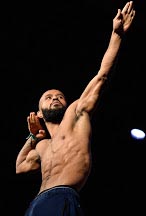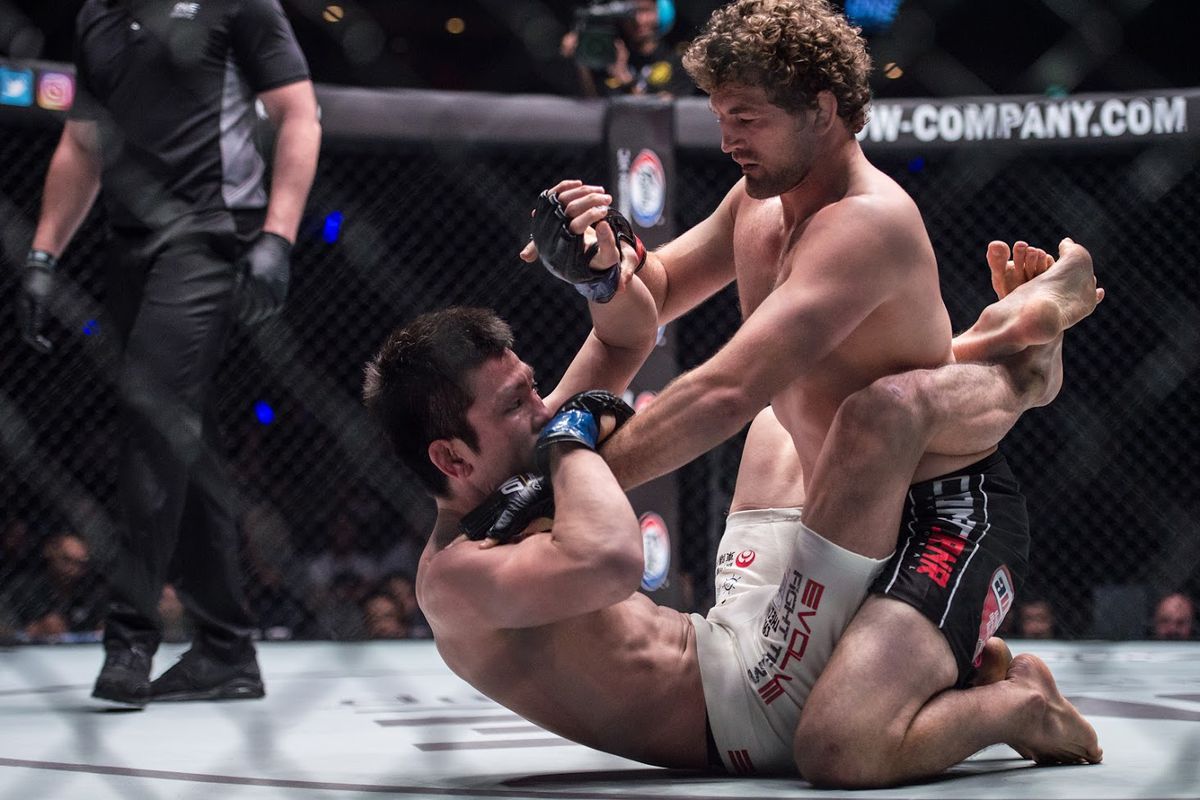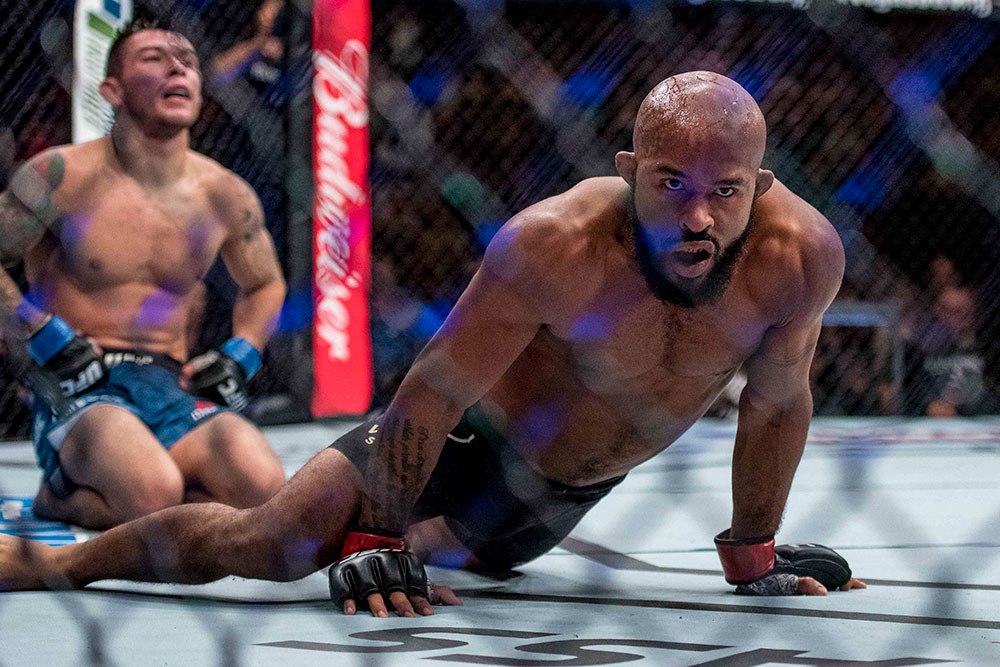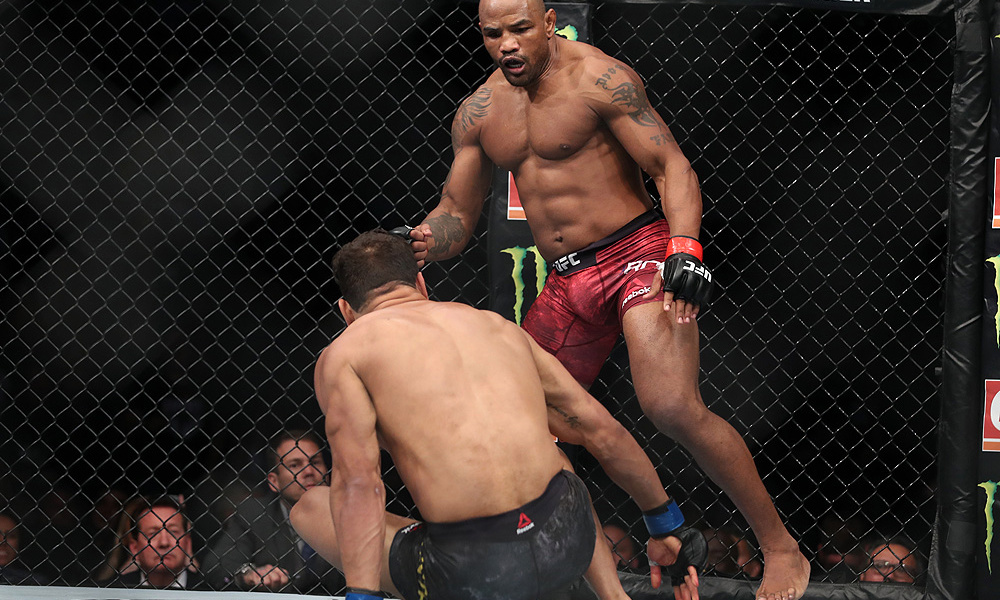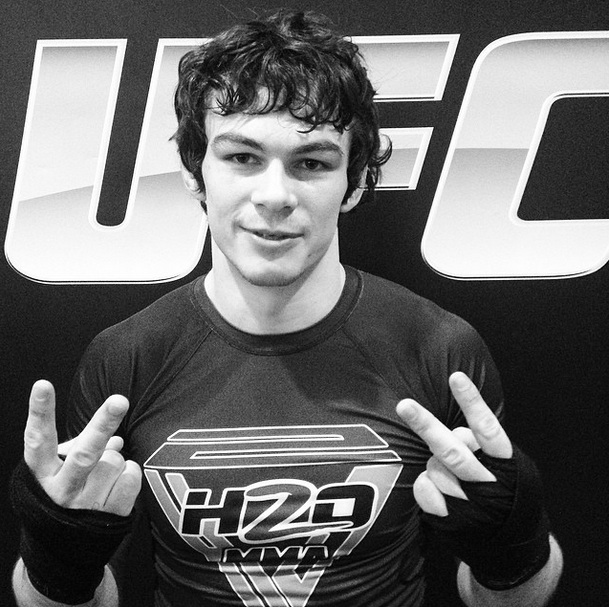If you opened your favorite social media app and saw multiple posts and tweets referencing a big trade, one would have thought that the commotion was due to a big move involving a star athlete changing teams in the NFL, NBA, or NHL. That wasn’t quite the case on Wednesday afternoon, however, when Ariel Helwani of ESPN reported that the Ultimate Fighting Championship and ONE Championship were close to finalizing a “trade” that would send former UFC Flyweight Champion Demetrious Johnson to ONE and former ONE welterweight champion Ben Askren to the UFC. With the most prominent names in MMA media debating the merits and implications of this move, it was clear that this news made an impact; the move’s potential impact on the future of mixed martial arts could be substantial.
According to the report by Helwani, both organizations agree to release each fighter, who will then be free to sign with the other organization. Johnson and Askren are widely considered to be two of the best fighters in their respective weight classes, and the idea of UFC and ONE agreeing to this transaction elicits a lot of excitement, intrigue, and concern for all the parties involved.
First, there are the fighters. The UFC, like the majority of MMA promotions, have gone through painstaking lengths to ensure that fighters are legally classified as independent contractors rather than employees. The status of “employee” comes with many rights that fly in the face of the traditional business practices of MMA promoters. UFC policies regarding fighter uniforms, drug testing, punishment, and pay have been viewed as inconsistent with that classification, but they have all withstood scrutiny and remain acceptable within the promotion’s presentation of its fighters as contractors, rather than employees.
But this “trade” raises questions. Yes, the UFC has released Johnson with the understanding that he will sign with ONE, but what was his say in this matter? His main coach, Matt Hume, is a vice president at ONE, which sounds like a potential conflict of interest. Trades in major team sports are typically subject to certain protections, most of which are supported by the athletes’ player unions. However, given that MMA fighters have no such advocacy, this news raises an alarm regarding their ability to have a voice in the conversations that are driving their careers.
Second, what does this mean for the UFC’s flyweight division? UFC President Dana White has reportedly threatened to fold the division in the past. Even with a pound-for-pound great like Johnson atop the weight class, flyweight fights haven’t drawn the kinds of eyeballs that some of the other divisions do. Plus, new champion Henry Cejudo is angling for a superfight against UFC Bantamweight Champion TJ Dillashaw, completely ignoring his obligations to the division where he holds the title. Fighters in the 125-pound weight class should closely monitor this matter and its effect on the future of their division.
Traditionally, the UFC has been willing to jettison fighters with expensive contracts that they’ve deemed lacking in ability to draw promotional revenue. Given the current state of PPV buys, that doesn’t bode well for anyone not named Conor McGregor or Jon Jones. And as the promotion continues to struggle in building new stars, falling ratings and PPV buy numbers have created skepticism around fighters’ career prospects under the current model. If certain fighters can’t get people to watch their fights, and they are now in danger of being “traded” at a moment’s notice, how does this affect their ability to earn a stable living in a career path where their incomes are already mainly derived from chasing big prizes for their respective performance? We’ve seen the earliest stages of MMA free agency lead to fighters being able to leverage one promotion against another to get better deals, but trades not only reek of collusion, but they reinforce the idea that fighters are interchangeable, undermining that leverage. Fighters will need to consult with their managers and other representatives to figure out the full impact of this development, but at first glance, they appear to be in a much more disadvantageous position.
The revelation of this potential deal between the UFC and ONE Championship has created fodder for discussion and debate that should continue in the days and weeks to come. Even Bellator President Scott Coker chimed in with a joke tweet. If it ultimately does come to pass, it will represent an important moment in MMA history, as the ramifications of this transaction will be felt long and wide, especially by the men and women who step into the cage to compete.

